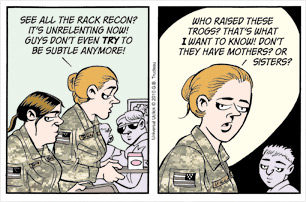
The Ahmadinejad ShowOn the 31st anniversary of the Iranian revolution, the regime drowns out opposition protests.
Posted Thursday, Feb. 11, 2010, at 4:38 PM ETIn the Washington Post, William Kristol writes that the Obama administration needs to do more than issue sanctions against Iran.
TEHRAN, Iran—Today was supposed to be the day when the Iranian opposition movement showed the world that it was the nation's future. In the end, protesters were unable to steal the stage from President Mahmoud Ahmadinejad, who used the 31st anniversary of the revolution to announce that Iran is a nuclear state. That speech is likely to be what the day is remembered for.
For the first time in months, several members of the foreign press were allowed to cover a public event in Tehran. We all gathered at the foreign-media office of the Ministry of Islamic Culture and Guidance early this morning to receive credentials for the day, neon-colored vests marking us as press, and chocolate milk. We then boarded three buses and made our way to Freedom Square.
I kept my eyes glued to the window waiting to catch signs of protests, but there was nothing. In recent months, Tehran's murals of martyrs and revolutionary figures have been splashed with green paint. On our route, I saw one painting of Ayatollah Khomeini with a swath of green stretching down from his forehead.
As we arrived at the square, it was clear that most entrances had been blocked. The number of people entering was small but steady, eventually growing to a crowd in the tens of thousands—not a rare sight in the Islamic republic, where the regime is adept at manufacturing displays of support.
We were led to a raised platform less than 100 feet from where President Ahmadinejad would deliver his speech. Unfortunately, we weren't allowed to mingle with the crowds, and those near us, mostly teenage girls, were told not to speak with us, but instead to show off their propaganda signs proclaiming "Death to America," "Death to Israel," and "Death to the U.K."
Several minutes before the president began his speech, text-messaging service was cut. We were all sure this meant unrest had broken out in other parts of the vast city. Cell service remained intact, though, and throughout the morning we all received calls reporting sporadic violence in a nearby neighborhood, but nothing like what was widely expected.
Ahmadinejad appeared on time at 11 a.m. and gave a predictably long-winded and nationalistic speech, mostly railing against the United States and finally announcing that Iran is producing 20 percent-enriched uranium. All this was met with cheers—at least by the people in the front rows—orchestrated by two men who would raise their hands when it was time for the crowd to make noise. They obligingly complied—everyone knows the routine by now.
Before the president had finished his speech—but after he had made his main points—the crowds began to disperse. We stayed on taking pictures, recording audio and video, and simply watching the spectacle. I realized that these events, with all their chest-pounding nationalism and bluster, are intended more for foreign-media consumption than for the crowds that are present. Any support won or reinforced among the locals is just a bonus.
The bus brought us back to the ministry by a different route. Again, there was no indication of major unrest: no smoke, no stumbling injured, no evidence of damaged property such as broken windows or torched trashcans.
Of course, there were reports of clashes and arrests—including relatives of opposition leaders Mehdi Karoubi and Mohammad Khatami—but nothing on the scale of events in recent months.
It's impossible to guess what will happen next, but today it seems clear that the street phase is over. The protests have been pushed underground, which means that the green revolution everyone has been waiting for will not be televised.
Become a fan of Slate on Facebook. Follow us on Twitter.
on the Fray
 Kaplan: The Nutty Theory That an Iranian Nuke Is Good for America
Kaplan: The Nutty Theory That an Iranian Nuke Is Good for America Buck Up! At Least Our Economy Is in Better Shape Europe's.
Buck Up! At Least Our Economy Is in Better Shape Europe's. Percy Jackson Is a Reprehensible Rip-Off of Harry Potter
Percy Jackson Is a Reprehensible Rip-Off of Harry Potter Help! Is It OK To Have an Affair With a Woman Whose Husband Has Alzheimer's?
Help! Is It OK To Have an Affair With a Woman Whose Husband Has Alzheimer's? Gerald Posner Tries—and Fails—To Blame the Internet for His Plagiarism
Gerald Posner Tries—and Fails—To Blame the Internet for His Plagiarism 23 Stars. A Dozen Plotlines. Valentine's Day Is the Most Complicated Date Movie Ever.
23 Stars. A Dozen Plotlines. Valentine's Day Is the Most Complicated Date Movie Ever.














